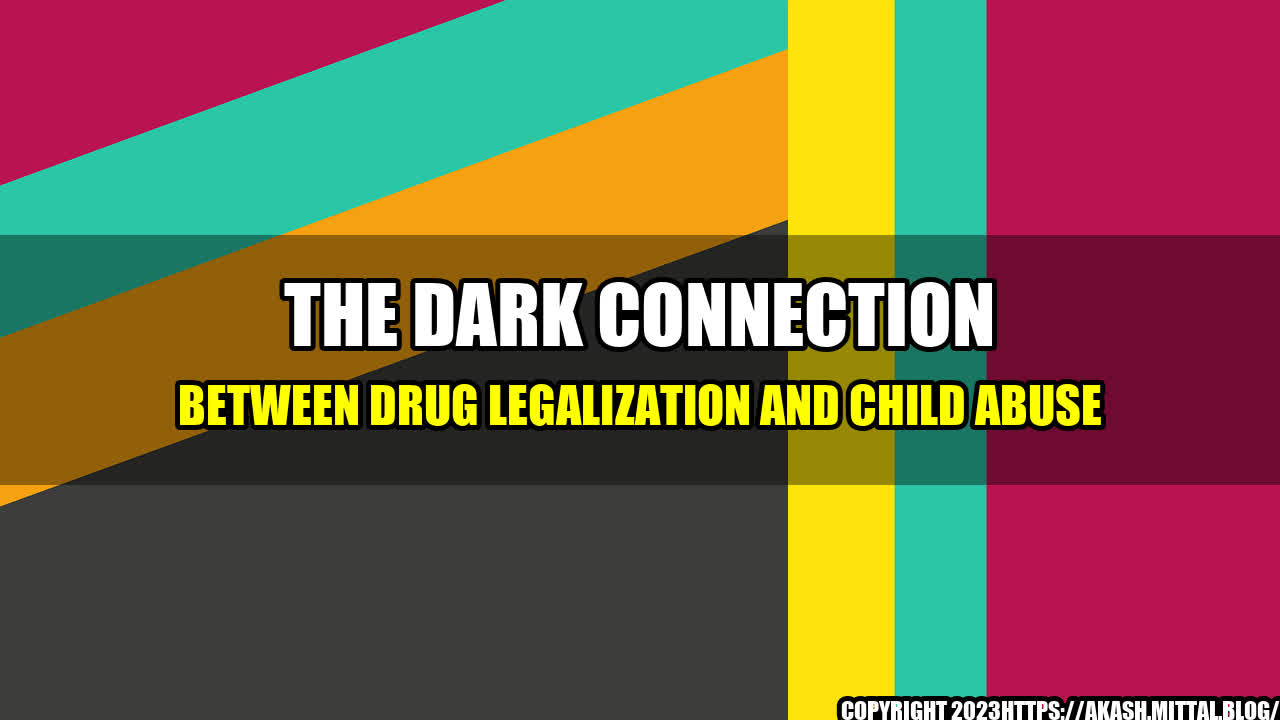The Dark Connection Between Drug Legalization and Child Abuse

It was an ordinary day at the hospital where I work as a pediatrician, until I was called to the emergency room to attend to a toddler who had been brought in by the police. The child was barely conscious, with bruises all over his body and signs of neglect. His parents were nowhere to be found. When we ran some tests, we discovered that the child had been exposed to methamphetamine.
This situation is becoming all too common in the United States, as more and more states legalize drugs that were once considered illegal. While some argue that drug legalization can help reduce drug-related crimes and promote a more just society, the reality is that it's putting children at greater risk of abuse and addiction.
The Facts
Drug addiction has been linked to a greater risk of child abuse and neglect. In 2016, there were approximately 676,000 children in the United States who were found to be victims of abuse or neglect, with drug use being a factor in 31% of all cases.
Child abuse can take many forms, including physical abuse, sexual abuse, emotional abuse, and neglect. Children who are exposed to drug use and addiction are at a higher risk of all of these forms of abuse.
Drug addiction also affects a parent's ability to provide care for their children. They may prioritize their addiction over their children's basic needs, such as food, shelter, and medical care. They may also expose their children to dangerous situations, such as drug dealing or violence.
Drug addiction is not limited to illegal substances, either. Alcohol, which is legal for adults to consume, is responsible for a staggering amount of child abuse cases. In 2017, there were over 58,000 cases of child abuse and neglect attributed to parental alcohol use.
The Solution
The solution to reducing child abuse related to drug use is a combination of prevention, intervention, and rehabilitation. Parents should be educated about the dangers of drug use and addiction, and how it can affect their children. They should also be taught parenting skills to help them prioritize their children's needs.
When parents are unable or unwilling to seek help for their addiction, intervention may be necessary to protect their children. This may involve removing the child from the home or providing support and resources to help the parent overcome their addiction.
Rehabilitation is key to breaking the cycle of addiction and reducing the risk of child abuse. Rehab programs should not only focus on treating addiction, but also on addressing the underlying causes of the addiction, such as trauma or mental health issues.
The Call to Action
The legalization of drugs may seem like a solution to reducing drug-related crimes, but it's important to consider the impact it has on children. Parents have a responsibility to prioritize their children's needs over their addiction, but society also has a responsibility to provide support and resources to help them overcome their addiction.
As individuals, we can support organizations that provide education, intervention, and rehabilitation services for parents struggling with addiction. We can also learn about the signs of child abuse and neglect and report it when we suspect it.
As a society, we can advocate for policies and programs that prioritize the well-being of children and families. We can also hold elected officials accountable for their actions and demand that they prioritize the needs of children over political agendas.
Curated by Team Akash.Mittal.Blog
Share on Twitter Share on LinkedIn